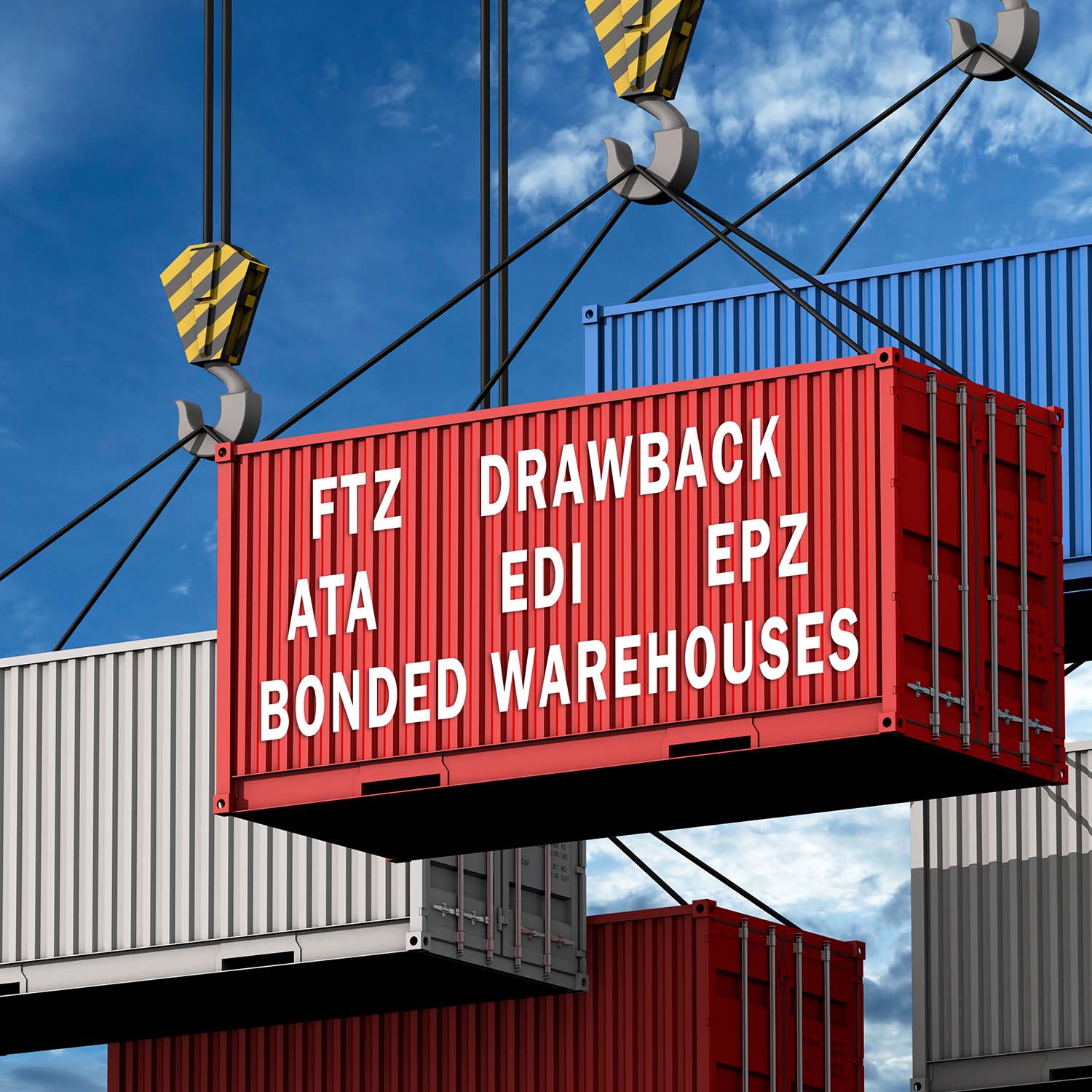Export: Special Provisions
Export Processing Zone (EPZ)
An Export Processing Zone (EPZ) is an industrial development area particularly designed to promote the manufacture of export products and services. Tariffs and quotas are removed, and bureaucratic requirements are reduced to attract companies.
- According to Chinese regulations, an EPZ must be set up in a state-level development zone. Its annual turnover of processing trade must exceed USD 100 million, and it must be closed down if there is no investment within three years.
- The goal of an EPZ is to grant zero export taxation to all exports to remove double taxation before they reach consumers in the importing country.
- Export credits and loans or financing facilities are sometimes offered to exporters or importers. Loans based on Letters of Credit, export forfeiting, export bills negotiation, export promotion loans at preferential interest rates, and deferred payments for importers are also sometimes offered.
- Export credit insurance is offered to exporters to cover the credit or political risks related to export activities.
Industrial Parks
New foreign-invested production enterprises can benefit from the "Two Years Free and Three Years Half" preferential policy from the year of making profits. Export enterprises can continue to pay just half of their income taxes as long as their annual exports are at least 70 percent of their total sales.
Government-encouraged projects, high-tech or export projects, and research and development centers are exempted from all tariffs and import linkage tariffs on imported equipment.
Export Duty Drawbacks
Duty drawback schemes entail a combination of duty rebates and exemptions. These schemes are a common feature in many countries. They are used in highly protected developing economies to facilitate exporters with imported inputs at world prices. This not only enhances their competitiveness but also protects the rest of the country’s economy.
Duty drawbacks in the form of tariff exemptions have been an important feature of China’s export processing system. Initially the system provided various incentives both for the processing of raw materials for export and the assembling of imported parts and components to produce finished goods for export (known as processing and assembling or processing with supplied materials).
These incentives were expanded to allow duty-free imports of all raw materials, subsidiary materials, parts, accessories, components, and packing materials supplied by foreign enterprises for inward processing or assembling, or brought from abroad to make goods for the foreign market. The exemption is granted on the basis of the quantity of the material, parts, and so on, that is actually used in the processing or assembling and is re-exported.
China has increased its drawback to 15–25 percent.
Export Tax Rebate
Enterprises authorized for import and export business enjoy free consumption and "exemption, reduction, and refund of value-added tax (VAT)" when they export their own production, or other goods that they bought from outside China, if they meet the following criteria:
- Have the same product name and function
- Use the registered trademark of the export firm or an authorized foreign invested firm
- Export goods they have produced themselves outside the company
Companies that have no right to export their products must pay a stipulated tax in advance and obtain refunds after export.
Various kinds of companies can enjoy export tax rebates:
- Manufacturing enterprises with export rights
- Foreign trading enterprises with export rights
- Industrial and trading enterprises with export rights
- Sino-foreign joint ventures with export rights
- Joint venture chain enterprises with export rights
- Trading companies cited in free trade or other zones.
The export tax rebate rate varies according to the type of goods. The rates are 13, 11, 8, 5, and 0 percent.
Duty Refund
Under either of the following circumstances, an obligatory duty payer may apply for the refund of customs duties within one year from the day when it paid the last duty. The duty payer must present the reasons to the customs in writing and provide the original receipt of the payment of duties and other relevant materials.
- The export duty-paid goods that are re-carried into China in their original forms because of quality or specification reasons after having paid the domestic link export rebates
- Export duty-paid goods that fail to be loaded and exported for any reason provided an application is filed for canceling the Declaration of such goods
Export Financing
EXIM Bank
The Export-Import (EXIM) Bank of China offers the following export financing schemes:
Export Seller's Credit
Loans are provided to an exporter to finance export of manufactured or purchased mechanical and electronic products, complete sets of equipment, and new high-technology products as well as the provision of labor services.
Export Buyer's Credit
Medium- and long-term credit is provided to foreign borrowers to finance their imports of Chinese products, technologies, and services. The credit is designed to facilitate a foreign importer's (or project owner's) payment "at sight" of commercial contract to Chinese exporters or contractors.
China Export and Credit Insurance Corporation (SINOSURE)
SINOSURE provides a broad range of short- and medium-term credit insurance, including:
- Comprehensive cover insurance
- Specific buyer's insurance
- Specific contract insurance
- Breach-of-contract insurance
- Buyer's credit insurance program (for exporters or lending banks)
- Supplier's credit insurance program
Export Subsidies
China provides export subsidies in order to promote its export sector. China’s subsidy programs are often the result of internal administrative measures and are not publicized. Sometimes they take the form of income tax reductions or exemptions. They can also take a variety of other forms, including mechanisms such as debt forgiveness and reduction of freight charges.
Note: The above information is subject to change. Importers and exporters are advised to obtain the most current information from a customs broker, freight forwarder, logistics professionals, or local customs authorities.
Source: General Administration of Customs
Article written for World Trade Press by Taylor Holloran, Jennifer Goheen, and Nina Bellucci.
Copyright © 1993—2025 World Trade Press. All rights reserved.

 China
China 